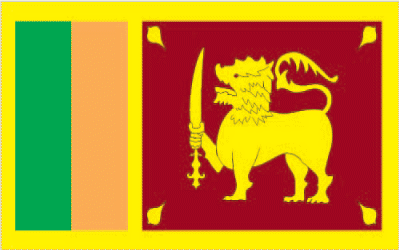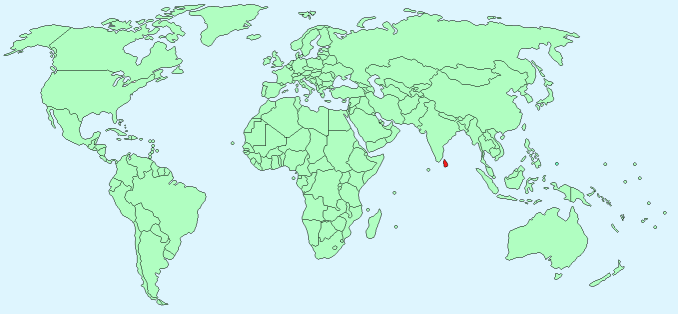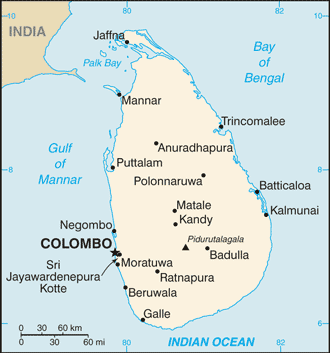Sri Lanka


Continent – Asia
Region – Southern Asia
Size – 66,610 km²
Geography – mostly flat rolling plains, some hills in the south
Language – Sinhala 74%, Tamil 18% other 8%
Religion – Buddhist 70.2%, Hindu 12.6%, Muslim 9.7%, Roman Catholic 6.1%, other 1.4%
Monetary Unit – Sri Lankan Rupee
Natural Resources – limestone, graphite, mineral sands, gems, phosphates, clay, hydropower, arable land
Agriculture – rice, sugarcane, grains, pulses, oilseed, spices, vegetables, fruit, tea, rubber, coconuts, milk, eggs, hides, beef, fish
Industry – processing of rubber, tea, coconuts, tobacco, telecommunications, insurance, banking, tourism, shipping, clothing, textiles, cement, petroleum refining, information technology services, construction

Neighbouring Countries – None
Population – 22,053,488 (2015 estimate)
Population Growth Rate – 0.84%
Average Life Expectancy – 76.56 years
Capital City – Colombo (707,000)
Highest Mountain – Pidurutalagala (2,524 m)
Longest River – Mahaweli (335 km)
Climate – subtropical 22°C to 35°C
Yearly Rainfall – 210 cm approx
Plant Life – teak, ebony, ferns, bamboo, palm, satinwood, jak trees, orchids
Animal Life – elephants, leopards, bears, monkeys, deer, sloth bear, dugong, wild boar, porcupine,
Bird Life – Ceylon grackle, Ceylon whistling thrush, yellow-eared bulbul, redfaced malkoha, ducks, storks, herons, egrets, flamingos
Harvard Reference for this page:
Heather Y Wheeler. (2016). Sri Lanka. Available: https://www.naturalhistoryonthenet.com/Facts_Figures/Country_Facts/srilanka.htm. Last accessed Tuesday, July 19, 2016
Facts and Figures Pages
